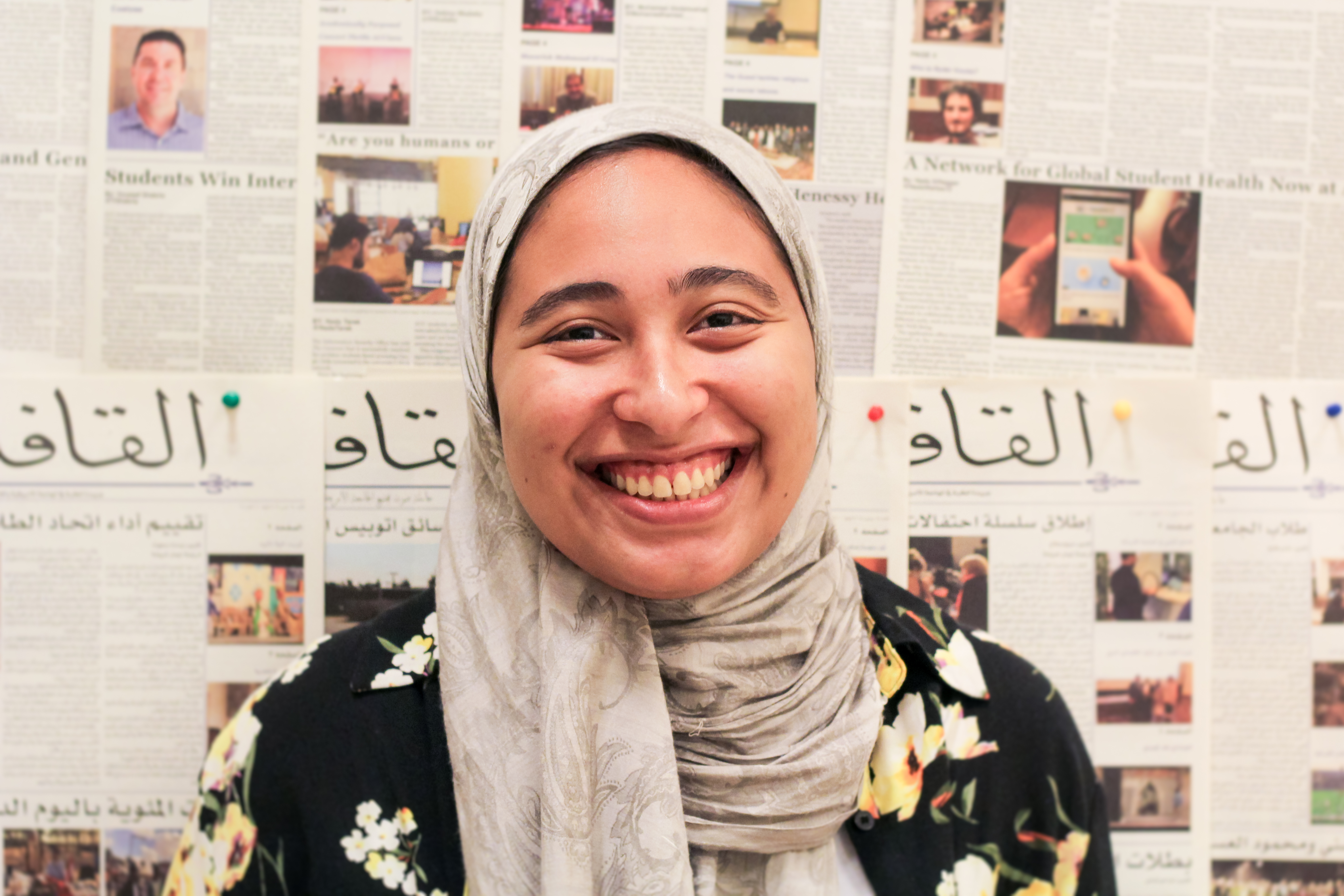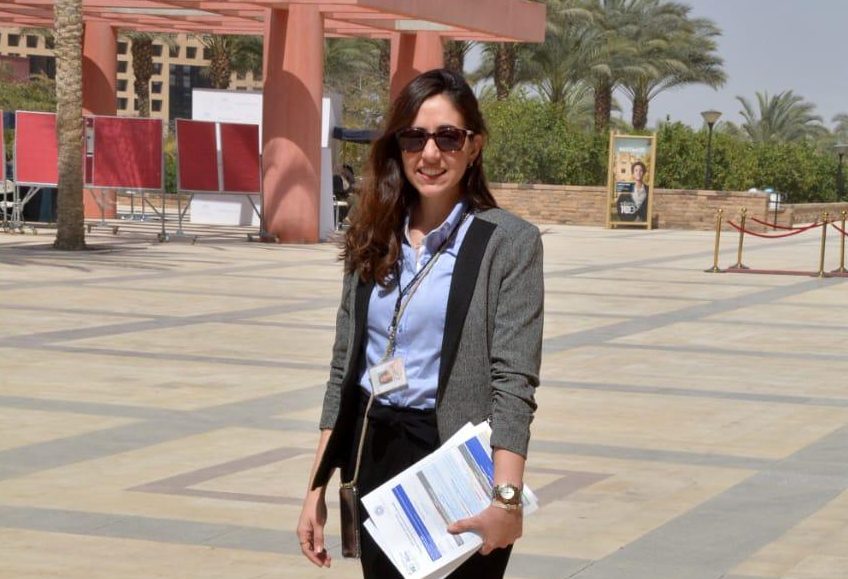Just an Accessory
By Noran Alaa Morsi
Spotlight Editor
They expect us not to bring it up, which is exactly why I am.
I’ve been wearing the Muslim headscarf for about six years now, which spans almost all of my high school and university years. Throughout these six years, I’ve brought this accessory with me to a range of institutions and events in Egypt and abroad in the West, in countries like the UK and the US.
There has been a level of consensus to respect the accessory itself, but not of respecting my choice to put it on.
I decided to don the scarf as a 14-year-old who quite frankly did not understand the magnitude of that decision; a naive choice that correlated with a high school trend, without much foresight. While I fortunately grew to love and appreciate its beauty and along with that, its struggle – my surroundings did not.
It is not an easy feat to wear this accessory everyday. And, I’m not lying when I say that sometimes it’s easier to wear it in more western countries than in Cairo. In Cairo, there seems to be an assumption that we, those who wear the hijab, are religiously perfect. We are not capable of and should never make mistakes – ethically, religiously or socially.
As a woman in Cairo and the world, you are already judged. But, as a hijabi you are put under a microscope. It’s either your pants are too tight, or you’re a “prude” who should let loose. You talk to too many males, or you’re too shy. Everything you say is watered down by your appearance. There is a constant assumption that you were forced into wearing it by a male guardian. You are a walking social and political symbol.
We always talk about the oppression veiled women face in the west and while that can be awful – within Egypt it tends to be more common in a different way.
When I’m abroad, I’m not expected to be a perfect Muslim. Perhaps this comes from a layer of religious ignorance, but by most, I am treated regardless of religious affiliation. From the silliest things like how people I meet don’t shy away from cursing in front of me, or that they don’t avoid certain taboo topics in fear that I’ll judge them. In Cairo, they do.
In this capital city, I’m sometimes the odd one out. In Cairo, where there are more veiled women than any Western country, I am excluded, almost isolated because of an article of clothing.
So, next time, instead of asking me if I was forced to wear the hijab, I’d be thankful if you’d make an effort not to alienate me because of an accessory.




